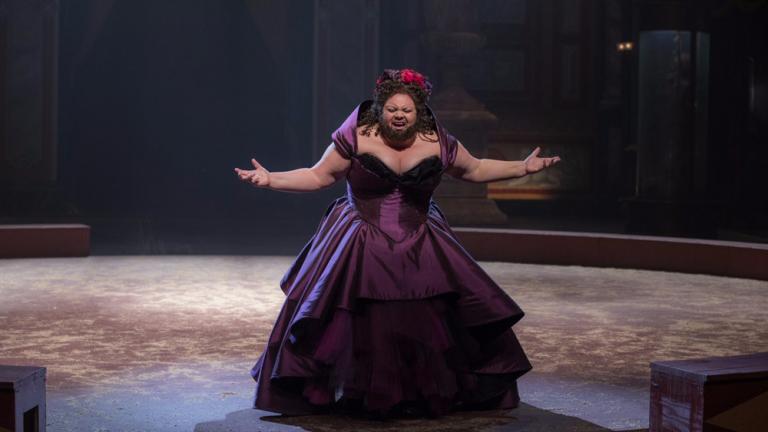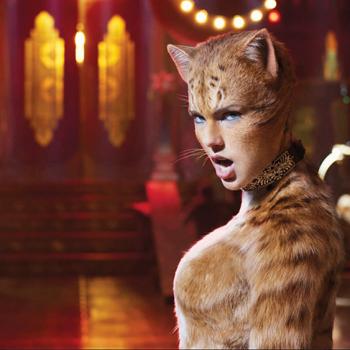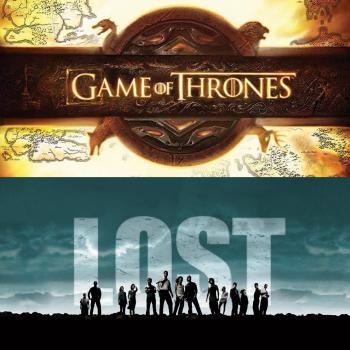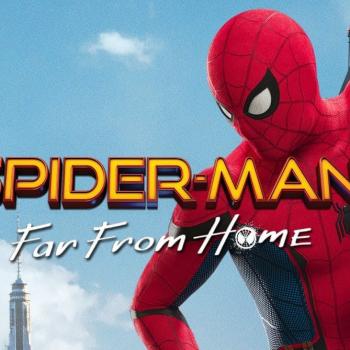
Warning: Contains spoilers
Read “The Greatest Showman and The Other Woman“
Welcome my sister, Julie Kersting of Artist Ave as our guest contributor and rebuttle writer for The Greatest Showman. While I took issue with some of its historocity, my sister saw a different film.
Now with the release of the movie musical on Blu-Ray and DVD, my sister had the fun of showing her kids the movie that went along with the music. To her delight, the themes of the musical pricked excellent discussion with her children (8 years old and under) – the highlights of which she shares here.
Let’s go to the Big Top!
Catchy, kitschy, fake! Oh my! Filled with toe tapping music and every song is a hit single? Heavens! Modern identity politics and a hopeful ending? So cheap!
Critics just love to hate “The Greatest Showman.”
“Chicago” grit this is not, nor is it the introspective” La La Land.” Perhaps it is “Moulin Rouge!” light or “Newsies” revamped. Yet I find myself more outraged over the inaccuracies found in “Newsies” than this historical fantasy that is “The Greatest Showman.”
Critics aside, I say that “Showman” is for the family and our society today more than ever.
- Are you a parent or care giver suffering from repeat music such as, “Let it Go”, “How Far I’ll Go”, “Hakuna Matata”, or “I’m Still Standing”?
- Do you long for some substance in your movie viewing as you are strapped to an arm chair under demanding tiny humans who are covered in yellow speckles (that you sincerely hope is the remainder of gold fish…crackers, that is)?
- Have you already introduced these wild natives to the greats such as the clever but overly lengthy “My Fair Lady” (can I get a show of hands of who makes it further than the song “We Did It,” because that second Act is a drag) or attempted to delve into the depths of “Les Miserables” with your seven year old, only to remember how much of Act I you will have to gloss over or at least fast forward?
- Are you a child of the “Newsies” era who raised your own fist to “Seize the Day,” including every song that had a reprise?
Then “The Greatest Showman” might just be up your alley.
This Is The Movie You’ve Been Waiting For
When I went to see “The Greatest Showman,” it was in the theaters (an uncommon enough occurrence as a mom of four), by myself (my parents had seen the movie the night before and INSISTED on sending me as soon as possible, even watching the kids while my husband was at work), and it was early in the morning (my normal ‘working hours’ of momming and homeschooling around as opposed to the luxury of the occasional evening out).
In other words, it was a completely surreal experience.
Upon coming home I did all my “research” (mainly reading Wikipedia and articles summarily outraged at the historical inaccuracies) and couldn’t resolve my own feelings about “The Greatest Showman”. Had I just been duped with its awesome choreography and fast paced plot? Or was this really a brilliant piece using history as a façade to talk about deeper things? I had no idea and gave it no more thought until recently when I began listening to the music with my kids.
Colossal We Come
Watching a five year old purse her lips and furrow her brow while belting “This is Me” is an incredibly encouraging sight in this world of teaching young children self-acceptance and bodily autonomy. Even the two year old opens her arms and sings “Never, never!” with great off-tune meaning. The boys took their head bopping seriously to the opening song’s rhythm. I knew we had to watch it at least once.
The hard topics came almost immediately.
We saw the movie together, complete with many pauses to break up fights over people standing in front of the TV. Those became into pauses for explanations as they turned wide eyed to me to understand what the problem was between mixed-race couple Efron and Zendaya who play as Philip and Anne. Why couldn’t they be together? Why did he let go of her hand at Jenny Lind’s concert? These subtle gestures did not go over the heads of the eight below crowd, to whom this kind of rejection had never been equated to someone with different colored skin.
Suddenly “The Greatest Showman” went from being about incredibly catchy songs to talking about topics that I’ve been reading about in the Facebook group “Be the Bridge to Racial Unity.” To know that there are many who still mistreat others based on their skin color was horrifying to my older boys. My own sister-in-law is a person of color and has told me some of the ways that she has been treated because of racism. nn
But here I’ve sat, in our middle class contentment, ignoring a subject that I haven’t felt comfortable broaching with my own children, namely: that their aunt and cousins will almost certainly be and have been the victim of racism.
The same discussion has extended to be about our various family friends, all of whom range from mixed marriages of Latino, Korean, Chinese, and African American. We are in the privileged and comfortable position to treat our friends the same, but as Barnum says, “Comfort: the enemy of progress…” has stopped me from explaining that so many that our family holds dear may not always be treated the same as everyone else. That they will be hurt and made to feel inferior by those blinded by fear and hatred.
To watch this movie, to pause and discuss how society and individuals has misused and still abuses others who only appear different than us, is a never ending conversation filled with culpability. Just as every generation will educate its children to be kind, to not take advantage, to not abuse, misuse, and rape, to not steal and lie, we will always be teaching that there are always those hurting and—although we may not be the assailant—we can be the bridge to help them. We can jump in to support and listen to their hurt and pain, their stories. The new discussion for the privileged includes curbing our tendency to push for information from our friends as to what it must be like to suffer racial cruelty. Be there for them if they choose to open up and educate yourself through groups or books.
How Can We Rewrite the Stars?
Some other things I love: the talk about consent and body image.
The fact that Anne does not say yes to Philip after their duet is marvelous. There isn’t even a kiss. Her no means no and he respects that. She has no idea that in the previous scene he all but disassociated himself with his high society family in support of Anne. Then, just as impactful, when Philip rushes into the fire to save Anne, whom he believes is in the inferno, only to be saved in turn by Barnum, Anne is allowed (not forced or coerced) to express her own love for Efron’s character. The respect the show has for its characters is not over the top, but in quiet moments of mutual appreciation.
Of course, we must address the diva in the room and, I for one, am thankful that it is not one of the lovers.
This is me!
The sister discussion about bodily acceptance through building yourself up and not appearances is central to this discussion. I come from a family of large women, large voice, and large amounts of unwanted hair. Over the years I have found that the lattermost is actually far more of a common problem cross-sectioning numerous females within my circles. This is still rather a taboo topic and beautifully treated through Keala Settle’s character “Lettie the Bearded Lady.” The actress is even seen grooming the beard as the show goes on, taming it and showing off what was once hidden shamefully.
Throughout my life there have been different bodily parts (usually that damnable tummy) that, through the art of tailoring, I would go out of my way to hide. We all are that way, looking to hide our physical selves or parts of them. Yet for my children, I desire them to love themselves as they are and so, when even my two year old looked at me with curiosity and asked, “Beard?” I answered, “Yes, some women may grow beards or have hairs where others don’t. It is part of who she is and it is good to be kind even though we may at first feel uncomfortable.”
I have to have these discussions about my own body as it grows and changes with child five. Mommy’s tummy is big and round and glorious like the sun. Do I always feel glorious? No. Absolutely not. But this is me and no matter how your shaped at whatever stage of your life, don’t I want my children to be as kind to themselves as my husband tells me I must be to myself? As kind Barnum’s daughter was in the beautiful quiet exchange of looks as they recruited Settle’s character?
We all know that Barnum pursues Lettie because of, well, that beard! While it is incredibly sad that the real sideshows were exploited by Barnum, the storytellers of “Greatest Showman” are attempting to speak to the modern world of the arts and how it can be another form of freedom for those who would otherwise hide.
Obviously Barnum is not perfect. He rejects his friends—a complete collection of oddities—at points throughout the movie. But through his physically flawed friends, he sees that his worth is not in the high society spot light, but with those with his same passion and, more importantly, with his own family.
My own eight year old says that one of the things that he likes about the movie is “that it teaches kids not to reject your friends and embarrass them, even if you might feel embarrassed just because they’re different.”
There is a freedom of self-expression that these side show characters found within the world of entertainment. And no one embraces it more than Keala Settle’s character.
I love that Settle was first heard on the soundtrack by my children. Her voice and the message of the song resonated beyond the message of her appearance. Then, during the movie, she is almost seen more for the beard than her size—considering how many people will note an actress’ BMI (body mass index) before her talent—and that she is the one who comes to self-acceptance without the need of a man to accept her. She sings her awesome solo “This is Me” after Barnum literally closes the door of high society in her face.
It was very brave to not have the story focus solely on the star-crossed lovers to teach us about tolerance, but a plus-size diva capable of holding her own spot front and center, just as much as the star crossed lovers, flawed Barnum and as his forgiving wife.
Walking A Tightrope
Ah yes, the long suffering wife. She certainly upheld her part of the duets, vowing to be there through good and bad. And they certainly go through the good and the bad.
Appearing the part of the “yes man,” the character of Charity Barnum is as strong as Jackman’s Phineas. She completely abandons her rich life and embraces the ups and downs of job losses and low income housing. She may grimace at the prospect of Barnum’s Museum, whose money she is aware is loaned under false pretenses. At the end she doesn’t even leave because of what we would expect: the supposed affair of Phineas and Rebecca Ferguson’s opera diva, Jenny Lind.
Though Jenny Lind was inaccurately written as a potential other woman (sorry Em, I don’t loathe her storyline as much), for the narrative’s sake, it finally took her siren potential to bring Barnum around to what is important: the family. It took Charity leaving because he lied about mortgaging the house to complete his return to how a true husband and father, a leading positive male figure, should behave. She left because he lied, knowing that he of course would never cheat since his love had been divided between fame and family.
We hardly had to pause at this part, because the children automatically understood that the father figure should not lie. It was hard that he went away for business, but had always spoken truth to those intimate to him, except in this instance. It is one thing to be a showman, turning a fraudulent face to the audience who pays knowing that they’re being lied to, but it’s another to scam your family. Barnum shows what you should not do. Do not shut out your friends just because new ones look better. He promises that, “From now on, these eyes will not be blinded by the lights.”
From Now On
I am incredibly blessed in coming from an honest upright man to marry one just as kind and open in his communication. Toxic masculinity is not understood by my children, for which I am thankful. So it is with relief that they can see Barnum, a fairy tale version of reality, blunder wrongly to be righted.
With the title of the movie being about the Showman and not the Greatest Show on Earth, we know that the spotlight falls on every decision he makes.
The writers did not create a perfect character who was accidentally thwarted by mishaps through no fault of his own, nor does it paint him a complete villain. To see the children understand how wrong it can be to climb a social ladder on the backs of friends and at the expense of family needed no great song or number about the issue. In fact, Charity is given the song “Tightrope” as Barnum travels with Lind—one that isn’t of the same caliber as the power house of every other song—but, if taken by itself, is a reflective pledge of love and support, loneliness and love. We all know where we want Barnum to return and it is with great relief that he can see through the veil of show business to his family.
He comes home repentant. I can’t tell you how often I have to tell my high-emotion seven year old that it’s okay to fight or to feel wronged or to walk away for a little bit, but that we need to apologize and forgive, talk and listen. That even when we fight, we still love one another. To see Barnum come home, repentant, acknowledging what he did wrong was his confession and Charity, appropriate to her name, gave absolution, reiterating that all she ever asked for was him.
Real men listen. Real men apologize. Real men uphold their families. Real men then rebuild, accepting help from the people who love them.
Everything You Ever Want
Barnum gives the circus to his friends in the end, he passes on the torch of entertainment to allow them to embrace their freedom of expression, and he leaves for his daughter’s ballet recital. It is a perfect wrap up. “It’s everything you ever want, it’s everything you ever need, and it’s here right in front of you,” he sings as he watches the unsophisticated ballet.
This is a story of accepting our family as being more important than our work. (Hey, how about all those blog posts about putting down our screens when we’re around our family and friends?)
The family is the core of this story.
Yes, a family of “misfits,” but also the nuclear family and its importance in the formation of that next generation. We can start our story of being the bridge within our own family, teaching them how we would want to be treated, teaching them how to be there for someone other than someone who may look like you or for more than your own ambition.
This is a historical fantasy, complete with magical spells in the form of songs, independent Cinderellas found in the ashes who get to choose the prince or themselves, and just enough substance to let the young audience spin its own greater story inside of the gaps.
It’s a fairy tale for the family who will find that quality time spent in the pauses, as much as the songs, is quality time well spent.
 Image courtesy of 20th Century Fox.
Image courtesy of 20th Century Fox.
Want to support the Pop Feminist? You can become a patron for as little as $1/month by joining Patreon!












